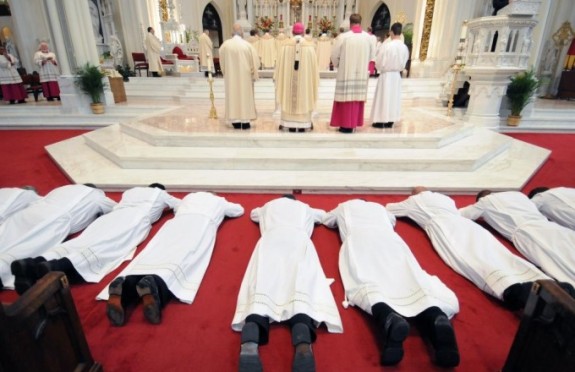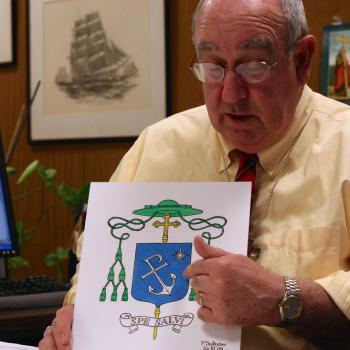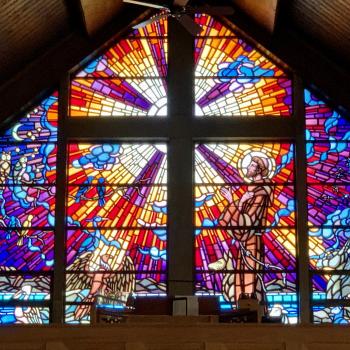You may remember the story from several days ago in Ireland, where a bishop bowed to protests and decided not to introduce the permanent diaconate in his diocese.
Br. Martin Browne, OSB, has written excellent response in The Irish Catholic:
Some of those who were most vocal in their criticism of Bishop O’Reilly seemed to imply that the bishop was excluding women from his invitation arbitrarily and that he could easily have included them if he had so wished. This is, of course, not the case. The bishop has no authority whatsoever to change the practice of the Church regarding who may be admitted to the sacrament of holy orders, and suggesting that he might do so is extremely naïve.
I am not an entirely disinterested observer in this matter; I am a native of the diocese and have been a deacon for the past six years. I believe that the restoration of the diaconate has enriched the Church and am saddened that it has become a cause of division…
…A major objection to the permanent diaconate is the claim that it further clericalises ministry in a clerical Church. This certainly is a danger and in places around the world where recruitment was done imprudently, clericalism has indeed been a problem.
Part of the reason for this lies in the fact that, because the diaconate was merely a stepping stone on the road to priesthood for a millennium, deacons are still often seen as half-priests. Introducing deacons to Ireland at a time when the numbers of priests are shrinking has reinforced this mistaken view.
Because the word deacon comes from the Greek word diakonos, which is usually translated as ‘servant’, deacons have often been associated narrowly with care for the poor. But as modern understanding of the Greek word develops, so too does our understanding of the deacon’s broader prophetic servant vocation.
As Vatican II put it, deacons are ordained for “the service of the liturgy, of the Gospel and of works of charity”. Service is the golden thread. Deacons are ordained to be living icons of Christ as servant, and to incarnate the servant nature of his Church. In short, deacons should be ordained not because we don’t have enough priests in the Church, but rather because we don’t have enough deacons!
A related objection is that deacons could supplant lay ministry. However, just as deacons are not meant to replace priests, neither are they supposed to replace the People of God in their mission of witnessing to the Gospel of Jesus Christ. A deacon who uses his clerical status to lord it over other Christians misses the point of his ordination…
…A wise bishop once asked: “Is there anything at all that is peculiar to the deacon? Is he given powers that are given to no-one else? The answer is ‘no’. There is nothing he can do which nobody else can do. But that is just what is distinctive about him. He has no power. He is a servant. He is entrusted with the ministry of Christ who washes his servants’ feet. He embodies the service of the Lord who has made himself the servant of us all.”
This speaks powerfully to the current controversy in Killaloe.
We get bogged down if we only consider what deacons do. Their significance lies as much in who they are as what they do.












